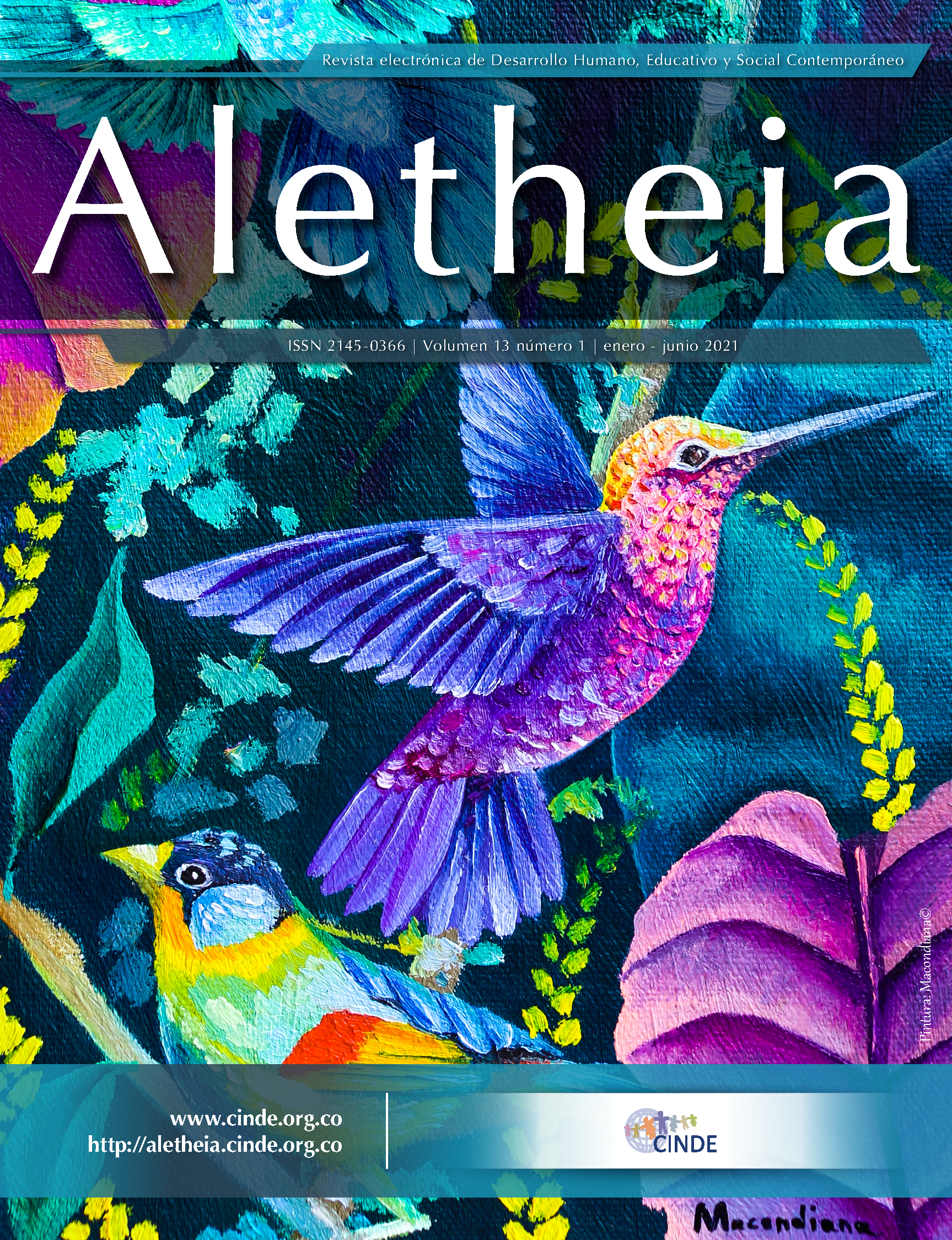Reflection on the power dynamics in the classroom: the teacher-student relationship. A case study
Main Article Content
Abstract
From a qualitative research approach, where the case study carried out at the Gonzalo Restrepo Jaramillo Educational Institution in the city of Medellín was used, a research exercise into the power relations in the classroom and the teacher-student relationship. In this sense, the classroom as a space of knowledge, allows various situations to materialize that revolve around ensuring power and achieving control by some of the actors who act as antagonists or sympathizers, interacting on the same stage. Finally, the results and conclusions identify and classify the type of relationship between the mentioned actors in terms of power. This is how this research contributes to the understanding of the dynamics existing in the teacher-student relationship and that are materialized and executed in the daily life of the educational exercise.
Downloads
Article Details
Issue
Section

This work is licensed under a Creative Commons Attribution-NonCommercial 4.0 International License.
Authors publishing in this journal agree to the following terms: a. The authors retainthe copyright to the journal and ensure the right to be the first publication of work asLicensed under a Creative Commons Attribution License that allows others toshare the work with an acknowledgment of the authorship of the work and the initial publication in this magazine. b. Authors may establish separate additional agreements to the non-exclusive distribution of the version of the work published inthe journal (for example, place it in an institutional repository or publish it in a book),with an acknowledgment of its initial publication in this journal. c. It allows and encourages authors to disseminate their work electronically (eg, in institutional repositories or on their own website) before and during the submission process,as it can lead to productive exchanges, as well as a subpoena more early andmost of the published (See The Effect of Open Access) (in English).
References
Aguilar, H. (2007). La performatividad o la técnica de la construcción de la subjetividad. Revista Borradores, 7, 1-9.
Antoni, E; Pagura, J; Quaglino, M. (2000). Análisis de la constitución del sujeto pedagógico a través de técnicas factoriales simples y múltiples. Magisterio del Rio de la Plata.
Austin, J. (1962). Cómo hacer cosas con palabras. Paidós.
Betancur Giraldo, H. (2018). Enseñanza-aprendizaje con prospectiva de paz en la formación policial. Ratio Juris, 13(26), 145- 160. https://publicaciones.unaula.edu.co/index.php/ratiojuris/article/view/514/681 DOI: https://doi.org/10.24142/raju.v13n26a6
Buchheim, Hans. (1985). Política y poder, trad. de Carlos de Santiago, Alfa.
Camacaro de Suárez, Z. (2008). La interacción verbal alumno-docente en el aula de clase (un estudio de caso). Laurus, 14(26), 189-206.
Candela, A, (2001). Poder en el Aula: una construcción situacional.
Discurso, Teoría y Análisis, 23(24), 139-157
Castells, M. (2009). Comunicación y poder. Alianza.
Corsi, J. y Peyrú, M. (2003). Violencias sociales. Ariel.
Delamont, S. (1985). La interacción didáctica. Entimema.
Deleuze, G. (1987). Foucault. Paidós. DOI: https://doi.org/10.5040/9781350252004
Derrida, J. (1974). Los márgenes de la filosofía. Cátedra
Domenach, J. (1981). La violencia y sus causas. Organización de las Naciones Unidas para la Educación, la Ciencia y la cultura (Unesco).
Fernández, C. (2002). Observación y auto observación de clase. Cervantes 2.
Flick, U. (2004). Introducción a la investigación cualitativa. (T. del Amo, Trad.). Morata.
Foucault, M. (1978). Vigilar y castigar. Siglo xxi.
Foucault, M. (1992a). Microfísica del poder. La piqueta.
Foucault, M. (1992b). El orden del discurso. Tusquets.
Foucault, M. y Jordá, J. (1999). Esto no es una pipa: ensayo sobre Magritte. Anagrama.
Fullat, O. (2000). Educación, violencia y erótica. La Tarea, 2, 13-14.
Galeano, M. y Vélez, O. (2002). Estado del arte sobre fuentes documentales en investigación cualitativa. Universidad de Antioquia.
Gómez Vahos, L. E., Muriel Muñoz, L. E. y Londoño-Vásquez, D.A. (2019). Prácticas evaluativas en la escuela. Una ruta pedagógica hacia la construcción de aprendizajes significativos. Aletheia, 11(1), 37-68. https://aletheia.cinde.org.co/index.php/ALETHEIA/article/view/547 DOI: https://doi.org/10.11600/21450366.11.1aletheia.37.68
Kaplan, C. V. (1992). Buenos y malos alumnos. Descripciones que predicen. Aiqué.
Lawrence, A. y Susan, G. (2002). Cartografía de la mente. Gedisa.
Luhmann, N. (1995). Poder. Anthropos.
Martínez, M. (2006). Ciencia y arte en la metodología cualitativa.
Trillas. Rodríguez Soto, J. R. y Hernández Sánchez, J. (2019). Los principios cooperativos desde el dilema ético y el grado de aplicabilidad. Aletheia, 11(1), 107-124. https://aletheia.cinde.org.co/index.php/ALETHEIA/article/view/550 DOI: https://doi.org/10.11600/21450366.11.1aletheia.107.124
Rueda, M. (1991). El aula universitaria: aproximaciones metodológicas. Universidad Nacional Autónoma.
Stubbs, M, y Delamont, S. (1978). Las relaciones maestro alumno. Oikos-Tau.
Weber, M. (1992). Economía y sociedad. Fondo de Cultura Económica.
Young, M. (1971). Knowledge and control: New directions for the sociology of education. Collier-Macmillan.
